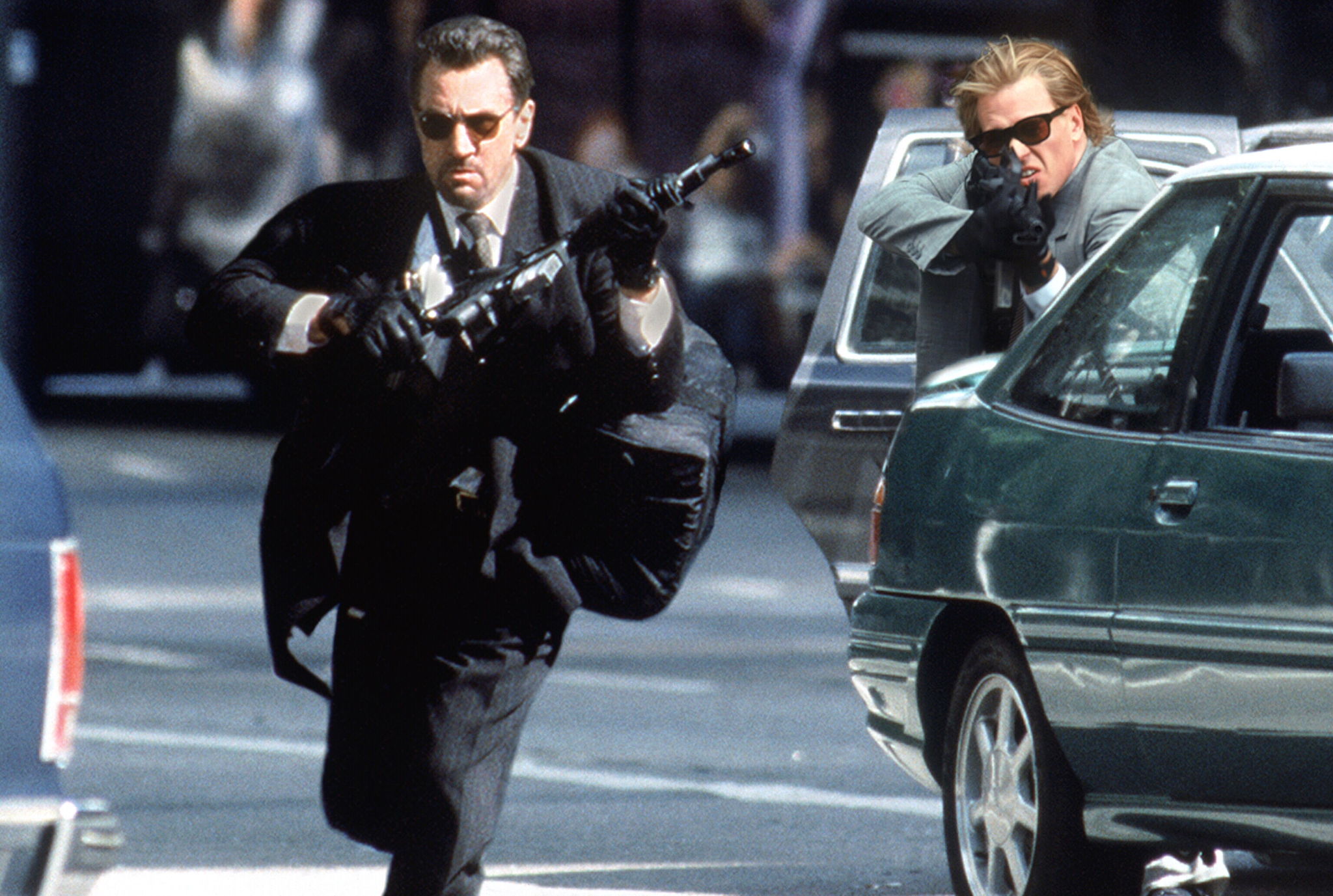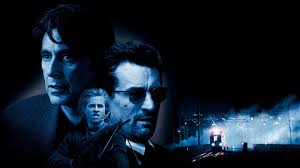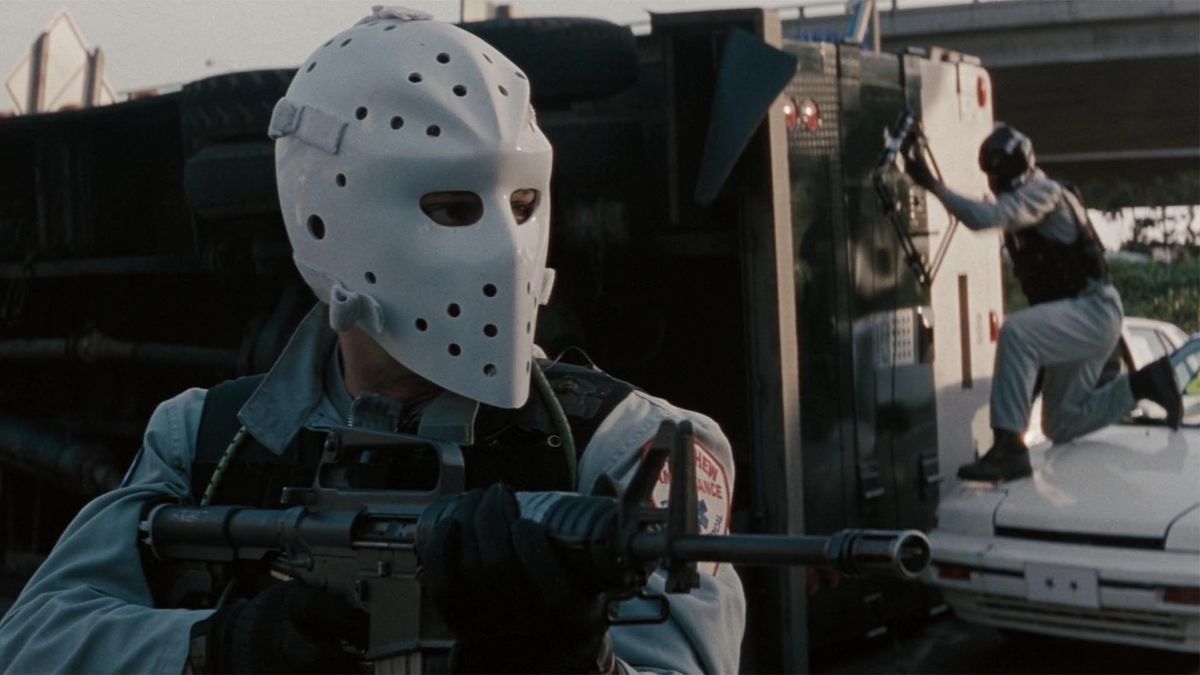Heat (1995)

🎬🎬 Heat | 1995 | Starring: Al Pacino, Robert De Niro, Val Kilmer
Synopsis:
Directed by Michael Mann, Heat is a gripping crime drama that explores the intersecting lives of a meticulous master thief, Neil McCauley (Robert De Niro), and an obsessive LAPD detective, Vincent Hanna (Al Pacino). When a botched heist leaves a trail of bodies, Hanna becomes relentless in his pursuit of McCauley and his crew, which includes Chris Shiherlis (Val Kilmer).
As the two men play a high-stakes cat-and-mouse game, their lives and personal struggles mirror one another, blurring the lines between criminal and law enforcement. Set against the sprawling urban landscape of Los Angeles, Heat delivers intense action sequences, emotional depth, and one of cinema’s most iconic face-offs between De Niro and Pacino.
Review:
Michael Mann’s Heat is a masterful exploration of crime, morality, and human duality. Combining meticulously crafted action, profound character studies, and a richly atmospheric setting, the film is a landmark in both the crime and drama genres.
From its opening moments—a daring armored truck heist that escalates into chaos—Mann establishes the film’s unrelenting tension and precision. Every detail, from the thieves’ clinical efficiency to the LAPD’s sprawling response, is meticulously executed. This attention to detail permeates the entire film, giving it a sense of authenticity and weight.
Robert De Niro as Neil McCauley is mesmerizing. De Niro imbues McCauley with a quiet intensity, portraying him as a man who lives by a strict code: “Don’t let yourself get attached to anything you are not willing to walk out on in 30 seconds flat if you feel the heat around the corner.” Yet, beneath his steely exterior, McCauley reveals glimpses of vulnerability, particularly in his budding relationship with Eady (Amy Brenneman), which threatens to upend his rigid principles.
Al Pacino as Vincent Hanna delivers an electrifying performance. Hanna is a man consumed by his work, his personal life in shambles due to his obsessive nature. Pacino’s portrayal is volatile yet nuanced, capturing the character’s intense drive and moments of introspection. The contrast between Hanna’s emotional chaos and McCauley’s calculated control creates a fascinating dynamic that drives the narrative.
The film’s supporting cast is equally strong. Val Kilmer shines as Chris Shiherlis, McCauley’s right-hand man, whose troubled marriage to Charlene (Ashley Judd) adds emotional depth to the story. Tom Sizemore, Jon Voight, and Diane Venora round out the ensemble, each bringing complexity to their roles.
The heart of Heat lies in its thematic exploration of duality and the parallels between Hanna and McCauley. Despite being on opposite sides of the law, they are kindred spirits—dedicated, lonely, and trapped by the choices they’ve made. This is most evident in their iconic face-to-face conversation over coffee, a scene brimming with mutual respect and existential reflection. Mann’s restrained direction allows the actors to command the screen, creating one of cinema’s most unforgettable moments.
The action sequences in Heat are legendary, particularly the climactic downtown shootout following a bank heist. The sequence is a masterclass in sound design, pacing, and choreography, immersing viewers in the chaos and danger. Unlike many action films, Heat grounds its violence in realism, making every gunshot and casualty resonate.
Los Angeles itself is a character in the film, with Dante Spinotti’s cinematography capturing the city’s vastness and isolation. The use of wide shots, neon lighting, and nighttime settings enhances the film’s moody, almost noir-like atmosphere. Coupled with Elliot Goldenthal’s haunting score, the visuals and music create an immersive experience that lingers long after the credits roll.
Beneath the film’s crime narrative lies a poignant meditation on loneliness and human connection. Both McCauley and Hanna grapple with their inability to balance their personal lives with their professional commitments. The women in their lives—Eady for McCauley and Justine (Diane Venora) for Hanna—serve as mirrors, reflecting the sacrifices they’ve made in their pursuit of excellence.
While Heat is nearly three hours long, its deliberate pacing ensures that every scene contributes to the overall narrative. The film demands patience but rewards viewers with a story that is as emotionally resonant as it is thrilling.
The film’s climax, set on an airfield under the glow of landing lights, is a poetic culmination of its themes. The final confrontation between Hanna and McCauley is both heartbreaking and inevitable, cementing the film’s exploration of destiny, morality, and the cost of living by a code.
Box Office Earnings:
Heat was a moderate box office success upon its release, grossing $187 million worldwide against a $60 million budget. However, its reputation has only grown over time, earning its place as one of the greatest crime dramas ever made and solidifying its legacy as a masterwork of modern filmmaking.











